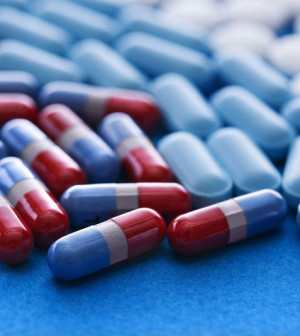- Could Your Grocery Store Meat Be Causing Recurring UTIs?
- Are You Making This Expensive Thermostat Error This Winter?
- Recognizing the Signs of Hypothyroidism
- 10 Strategies to Overcome Insomnia
- Could Artificial Sweeteners Be Aging the Brain Faster?
- Techniques for Soothing Your Nervous System
- Does the Water in Your House Smell Funny? Here’s Why
- Can a Daily Dose of Apple Cider Vinegar Actually Aid Weight Loss?
- 6 Health Beverages That Can Actually Spike Your Blood Sugar
- Treatment Options for Social Anxiety Disorder
When Cocaine’s in the Mix, Safe Sex May Not Be

The long list of health woes linked to cocaine abuse includes risky sexual behavior, a small, new study suggests.
The drug not only increases sexual arousal but also makes people impatient and more likely to have sex without a condom. This could increase their risk for sexually transmitted infections, according to researchers from the Johns Hopkins University School of Medicine in Baltimore.
“Our study affirms and may help explain why people who regularly use cocaine are more willing to partake in risky sex when under the influence of cocaine,” said study author Matthew Johnson in a university news release. He’s an associate professor of psychiatry and behavioral sciences.
Public health officials and physicians should be ensuring that cocaine users are supplied with condoms to prevent the spread of sexually transmitted disease, Johnson said.
Cocaine is a stimulant. The drug triggers feelings of euphoria and hyperalertness, the researchers said.
The study included 12 people who used the drug and weren’t trying to stop or get help for their substance abuse. Aside from their drug use, these participants had no other health issues. Their average age was 27 and each of the participants had some higher education.
Before each study session, the participants didn’t use drugs or alcohol. When they arrived at the research center, the researchers tested the volunteers before giving them a pill with no cocaine, 125 milligrams of cocaine per 153 pounds of body weight or 250 milligrams of the drug per 153 pounds of body weight.
The participants remained in the center for about 4.5 hours until their blood pressure dropped back down to a normal level, indicating they were no longer “high.”
During each session, the participants rated the effects of the drug every 10 minutes on a scale of zero to 4, with 4 being the strongest. Their sexual desire was also rated on a 100-point scale with 100 being the highest intensity.
In order to do this, the participants were shown 60 photographs of people on a computer screen. They were told to choose those with whom they would have casual sex. They were also asked to identify those least likely to have a sexually transmitted infection and read a fictional account of a sexual encounter with this person.
Then the volunteers were asked to rate the chances that they would use a condom before having sex if it was immediately available. They were also asked if they would use a condom if they had to wait increasing lengths of time, such as two minutes, five minutes, 15 minutes, 30 minutes, one hour, three hours or six hours.
The researchers found the participants’ sexual desire increased along with the effects of the cocaine. These feelings peaked about 45 minutes after they took the drug. The greater the cocaine dose, the greater its effects and the intensity of the users’ sexual desire, the study showed.
Regardless of whether or not they were on cocaine, 80 to 87 percent of the participants said they would use a condom if one were immediately available. The likelihood that any participant would wait to have safe sex fell as the length of time they had to wait for a condom increased, even if they weren’t on cocaine.
The researchers noted, however, the odds of waiting for a condom fell more significantly among those who were high on the drug.
When asked to factor in the chances of getting a sexually transmitted infection into their decision to wait for a condom or risk having unprotected sex, the study showed participants on either dose of cocaine were more likely to forgo using a condom than those not on the drug — even if their risk for infection was higher.
“The bottom line is that cocaine appears to increase sexual desire, and even though users who are on cocaine report being likely to use a condom if they had one in a risky sex situation, if a condom isn’t available, cocaine makes people less willing to postpone sex to get a condom,” said Johnson. “They become more impatient when it comes to waiting for sex.”
The study was published recently in Psychopharmacology.
More information
The U.S. National Institute on Drug Abuse provides more information on cocaine.
Source: HealthDay
Copyright © 2026 HealthDay. All rights reserved.










